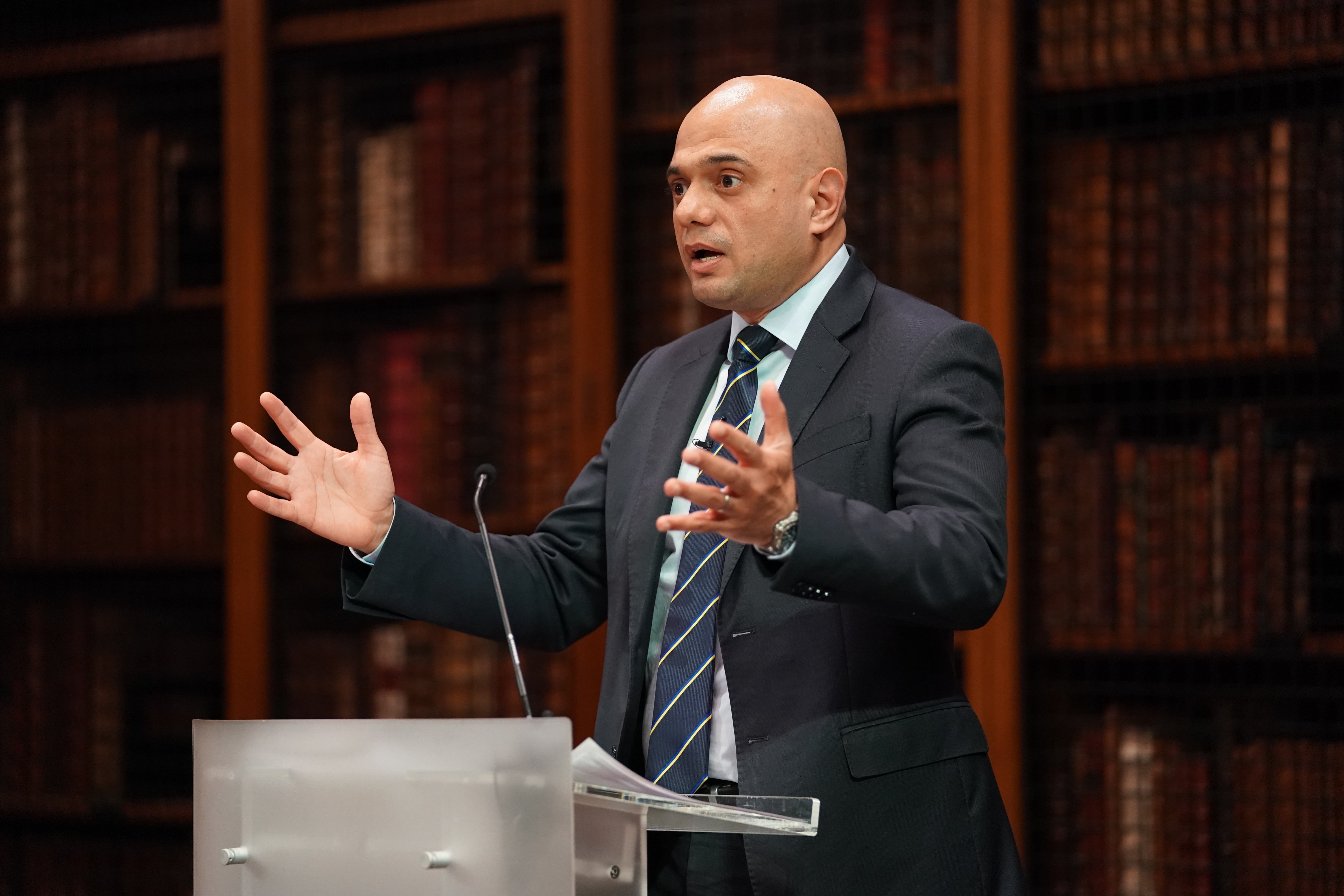Sajid Javid’s impossible mission: fix the NHS while Boris Johnson is distracted by war
The health secretary faces an unprecedented challenge, with one in 10 of the population on a post-pandemic waiting list, writes John Rentoul


I wasn’t going to mention Tony Blair for a while, but needs must. One of the essential lessons of his time as prime minister was his ability to retain a focus on improving public service delivery even after 9/11 and the military interventions that followed.
He did it partly by appointing the right person, Michael Barber, to lead a delivery unit that progress-chased for him, but also by carving out just enough time in his diary, in time of war, to stick to a regular schedule of “stocktakes” – short but intense meetings every two months to check on targets for the NHS, schools, transport and crime.
Sally Morgan, one of Blair’s advisers, told the “Blair Years” class I teach – with Dr Michelle Clement and Professor Jon Davis at King’s College London – last month that these meetings were “small enough to be a really tough session – supportive but tough, and saying, ‘Here we are, this is the waiting-list position; you said you were going to be here and you’re not, so what else do we need to do?’”
The model was influential enough for Boris Johnson to invite Barber back into No 10 to advise on recreating the delivery unit to deal with the challenges he faces. Part of the challenge is similar to that which faced New Labour: how to ensure at a time of rising spending on public services that value for money in the form of better outcomes is delivered. Part of it is new: that this improvement has to be achieved at the same time as a pandemic recovery programme for the NHS in particular, which is facing a waiting-list crisis. And both parts have to be pursued with the same intensity of focus that Blair mustered while engaged in a demanding and complicated foreign conflict.
A succession of emissaries from the New Labour years have come to our class at King’s to contrast Blair’s attention to detail and his grasp of the strategic priorities with the changeability and short attention span of the current prime minister. It wasn’t that Blair spent a great deal of time on public service delivery while British forces were deployed in increasingly difficult circumstances in Iraq and Afghanistan, but that he understood the importance of making the best use of his time, the most valuable resource at the top of government. He never, for example, cancelled a stocktake, which sent a message through the system about his priorities.
Johnson appears to understand this in principle, hence the re-creation of the delivery unit, but it is not yet clear whether he will follow through on the practice. Meanwhile the crisis of the NHS backlog demands the kind of urgent and sustained attention on which Blair would have insisted. Which raises the question of whether a forceful minister can deliver the kind of change that is needed if the prime ministerial leadership is weak.
Hence the importance of Sajid Javid’s ambitious speech this week on health reform. In it he said many of the right things about targets, technology and leadership. He even sounded rather Blairite when he announced the “right to choose” for patients who have spent longest on waiting lists – giving them the right to treatment anywhere in the country, with transport and accommodation paid for, or in the private sector. This isn’t new, he admitted, “but I want it to become standard”.
The problems are that NHS waiting lists are long all over the country, and the NHS is bad at using the private sector to provide treatment that is still free to the patient. We still don’t know what happened to all that private-sector capacity that was paid for during the pandemic and hardly used.
To keep up to speed with all the latest opinions and comment sign up to our free weekly Voices newsletter by clicking here
As for increasing the capacity of the NHS itself, Javid wants to exploit the fortuitous gains of getting 25 million people on to the NHS App during the pandemic, which offers the chance of a step change in the NHS’s use of technology, but it has to be seized. One other surprise during the pandemic is that staff recruitment continued to rise, with the Tory manifesto target of 50,000 more nurses already past half way. This has been achieved largely by recruitment from abroad, but again it is essential to increasing capacity.
Javid has a good line in soundbites, urging the NHS to innovate, and if necessary to use the private sector to help it to do so: “Free at the point of use and freedom at the point of delivery.” But it will take more than soundbites to deliver the kind of radical change needed to make a noticeable dent in the waiting lists that now include more than one in 10 of the population.
Blair made those kind of changes despite the distraction of war abroad; but he didn’t have the hangover from a pandemic to contend with. Javid is engaged in an even more ambitious experiment: is it possible to rebuild the NHS after 10 years of financial stringency, followed by two years of pandemic, with the support of an only fitfully attentive prime minister?
It sounds impossible, but we have to will Javid to succeed.






Join our commenting forum
Join thought-provoking conversations, follow other Independent readers and see their replies
Comments